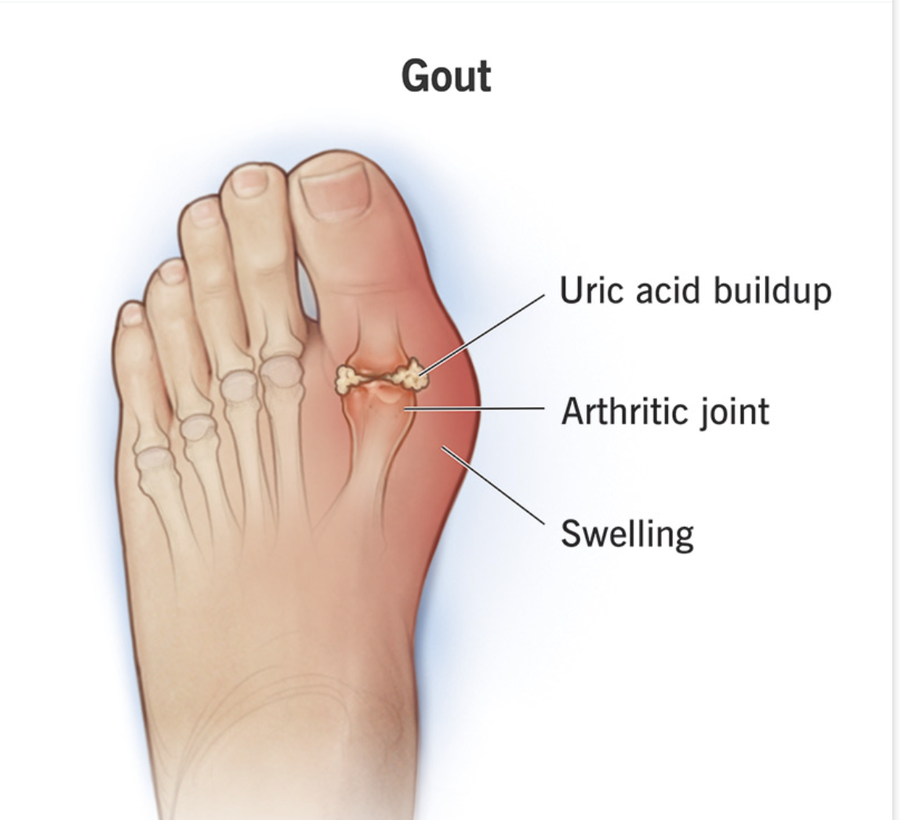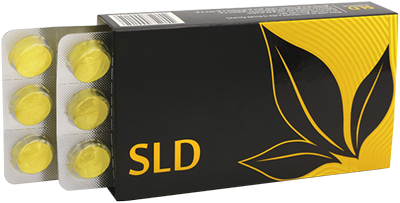
Gout is a common and complex form of arthritis that can affect anyone. It is characterized by sudden, severe attacks of pain, swelling, redness, and tenderness in one or more joints, most often the big toe. Gout attacks can occur suddenly, often waking you up in the middle of the night with the sensation that your big toe is on fire. The affected joint is hot, swollen, and so tender that even the weight of a sheet on it may be intolerable.
Gout is caused by an accumulation of uric acid crystals in a joint. Uric acid is a normal waste product formed from the breakdown of purines, which are found naturally in your body and in certain foods. Normally, uric acid dissolves in your blood and passes through your kidneys into your urine. However, if your body produces too much uric acid or your kidneys excrete too little uric acid, it can build up and form sharp, needle-like urate crystals in a joint or surrounding tissue, causing pain, inflammation, and swelling.
What is Good for Gout?
Management of gout involves both treating acute attacks and preventing future episodes. Here's what is generally recommended:
- Medications: During an acute attack, your doctor may prescribe nonsteroidal anti-inflammatory drugs (NSAIDs) like ibuprofen or naproxen, colchicine, or corticosteroids to reduce pain and inflammation. For long-term management and prevention, medications that lower uric acid levels, such as allopurinol or febuxostat, may be prescribed.
- Hydration: Drink plenty of water throughout the day. This helps your kidneys flush out uric acid more effectively.
- Dietary Modifications:
- Limit High-Purine Foods: Reduce intake of red meat, organ meats (liver, kidneys, sweetbreads), and certain seafood (anchovies, sardines, mussels, scallops, tuna, trout, haddock).
- Avoid Sugary Drinks and Foods: Fructose, especially high-fructose corn syrup, can increase uric acid levels. This includes sodas, fruit juices, and many processed foods.
- Limit Alcohol: Especially beer and hard liquor, as they can raise uric acid levels and trigger attacks. Wine appears to have less of an impact.
- Include Low-Fat Dairy: Some studies suggest that low-fat dairy products may help reduce the risk of gout.
- Cherries: There's some evidence that consuming cherries or cherry extract may help reduce gout attacks due to their anti-inflammatory properties.
- Vitamin C: Some research indicates that vitamin C supplementation may help lower uric acid levels.
- Complex Carbohydrates: Focus on whole grains, fruits, and vegetables (excluding high-purine vegetables like asparagus, spinach, and mushrooms, which are generally fine in moderation as they don't significantly raise uric acid).
- Weight Management: Maintaining a healthy weight or gradually losing weight if overweight or obese can reduce uric acid levels. Avoid crash diets, as rapid weight loss can sometimes trigger gout flares.
- Regular Exercise: Consistent physical activity contributes to overall health and weight management, which can indirectly help with gout.
- Coffee: Some studies suggest that moderate coffee consumption may be associated with a lower risk of gout.
- Stress Management: High stress levels can sometimes trigger flares, so practicing stress-reduction techniques can be beneficial.
It is crucial to consult with a healthcare professional for an accurate diagnosis and a personalized treatment plan for gout, as self-treating can be ineffective or even harmful.
ADVERTISEMENT

Ease Discomfort & Support Healthy Inflammation Response with SLD
SLD by APLGO is a carefully chosen balance of whole food ingredients, including Turmeric, Ginger, and Green Tea, specifically intended to support your body’s joints, muscles, and skeletal system by promoting a healthy inflammation response to exercise and calming physical discomfort due to overexertion. These innovative Acumullit SA® lozenge drops deliver targeted nutrients quickly, helping you maintain freedom of movement and ease stiff joints, so you can stay active and comfortable.
